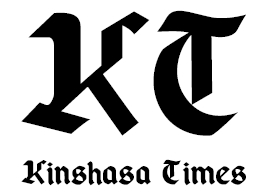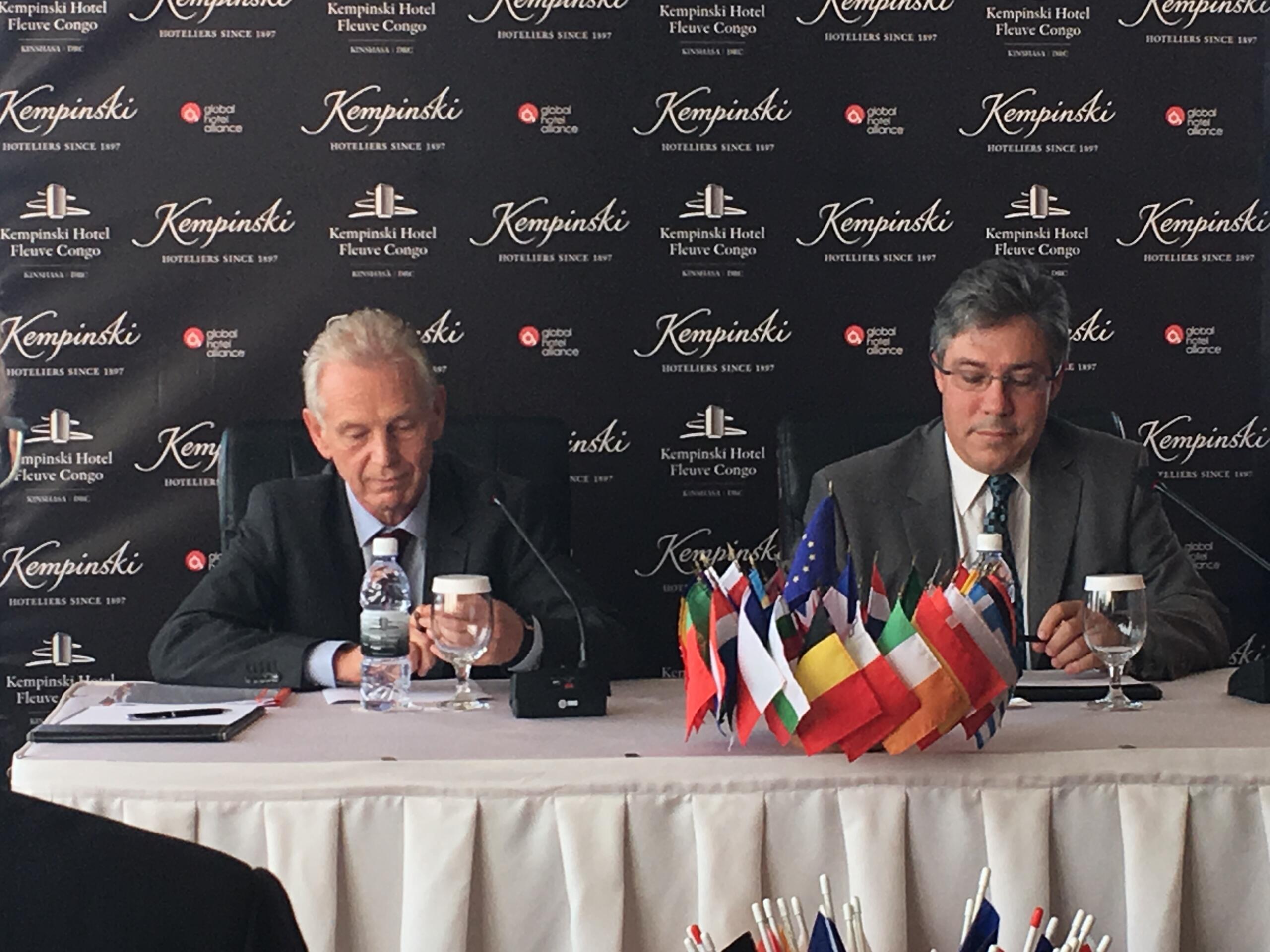 On O8 January 2016, the European Union (EU) Delegation to the DRC held a press conference to introduce the Kingdom of the Netherlands presidency of EU Council which that country will hold from 01 January to 30 June 2016. The Dutch Ambassador to the DRC Dr Gerard Michels outlined the guiding principles of this presidency to the press. He was flanked by EU Minister Counsellor Mr Bertrand who dwelled on EU work in the DRC.
On O8 January 2016, the European Union (EU) Delegation to the DRC held a press conference to introduce the Kingdom of the Netherlands presidency of EU Council which that country will hold from 01 January to 30 June 2016. The Dutch Ambassador to the DRC Dr Gerard Michels outlined the guiding principles of this presidency to the press. He was flanked by EU Minister Counsellor Mr Bertrand who dwelled on EU work in the DRC.
In his address, Dr Michels indicated that his country’s eleventh EU presidency comes at particular time as Europe is wrestling with a massive influx of refugees and a wave of terrorist attacks. He stressed that the six-month presidency his country is starting will centre on four priorities: migration and international security; Europe as an innovator and job creator; sound finances and a robust Eurozone; and forward-looking climate and energy policy. These “priorities will help promote a Europe focused on prosperity, freedom and security…” added the Dutch diplomat.
Ambassador Michels also mentioned the bilateral relations between his country and the DRC. These he said “will continue focusing on economic ties between Congolese and Dutch business people”. On the humanitarian side, his country will maintain its support to improve the living conditions of Congolese populations. On diplomacy, the Dutch diplomat announced the Netherlands would be a candidate for a non-permanent seat on the United Nations Security Council for 2017. He therefore called on the DRC government to support the Dutch Security Council seat bid.
Touching on the role of EU in the DRC, Minister Counsellor Bertrand elaborated on the work of the 28-member body across various sectors, including infrastructures, water and sanitation, elections and stability.
Asked whether the EU supports the political dialogue recently convened by President Kabila, Mr Bertrand said the “EU is supportive of the initiative if it can be a vehicle to strengthen stability in the country”. On elections, the EU diplomat underscored that his organisation stands ready to support the DRC. But the Congolese government must quantify the elections budget its needs from EU and outline a comprehensive elections calendar. Bertrand however cautioned that “…the longer the DRC government takes to provide the roadmap for elections, the unlikelier it becomes to hold polls in 2016”.
The EU is one of the largest donors to the DRC.
The Netherlands have so far held EU rotating presidency for eleven times, the last time having been in 2004. Previous Dutch presidencies yielded amongst other achievements the negotiations that culminated in the Maastricht Treaty in 1992. The Treaty was a milestone in EU construction, introducing the Euro as the single currency of the organisation amidst other transformative changes.


